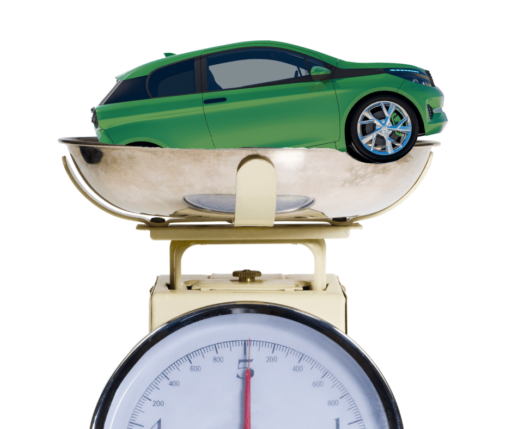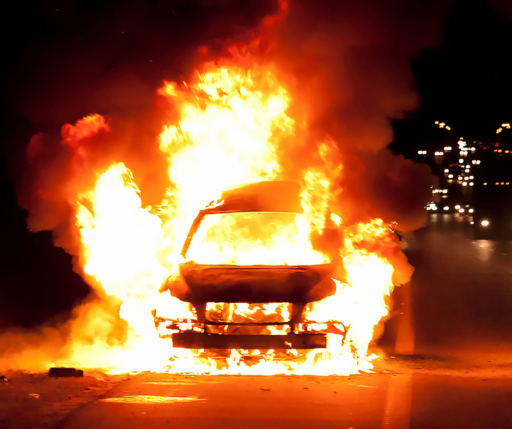Electric vehicles offer many benefits. In addition to providing more fuel efficiency, they’re sleek, comfortable to drive, and better for the environment.
That said, increasing evidence suggests that electric vehicles pose some concerning safety risks.
In this blog, we’ll discuss whether EVs are more or less likely to be involved in accidents compared to gas vehicles and what that means for drivers and others on the road.
Do EVs Get in More Accidents?
While the claims rates for EVs are roughly the same as conventional cars, there is more driver error in EVs. That, combined with more engine power, makes a deadly combination.
According to one study, the claims rates for large, powerful EVs are 40% higher than that for conventional vehicles.
The reason is simple: EVs accelerate much faster than conventional vehicles, which can catch drivers off guard.
While conventional vehicles take a moment to produce power, electric cars offer instant torque. This is an unfamiliar sensation for most drivers.
In one study conducted by German insurance company Axa, researchers found that electric cars are involved in 50% more traffic accidents than combustion engine cars, mainly due to fast and sharp acceleration, which surprises drivers.
The same study found that drivers of EVs cause more collisions with damage to their own vehicles than drivers of traditional cars.
What Makes EVs Dangerous? 3 Crticial Factors
1. EVs Weigh More Than Standard Vehicles
According to tests performed by the Insurance Institute for Highway Safety (IIHS), Electric Vehicles hold up well in simulated crashes.
The reason is that the batteries inside EVs make the cars very heavy, providing excellent protection for the passengers inside. That’s great news for drivers of EVs but bad news for the people who share the road with them.
The extra weight of EVs, which can be hundreds or even thousands of pounds, presents a real risk to other drivers.
Take, for example, the GMC Hummer EV, which weighs more than 9,000 pounds and can accelerate from zero to 60 mph in just three seconds.
This vehicle weighs upwards of 3,000 pounds more than GMC’s full-sized pickups. Its battery alone weighs roughly the same as a Toyota Carolla.
If an EV like this one is involved in a crash with a bicycle, pedestrian, or even a lighter vehicle, the accident could have a terrible outcome.
2. EVs are silent
EVs don’t make any noise when they operate. This removes the sound cue for pedestrians, bikers, and even other drivers who may be listening (rather than looking) for a car.
In 2019, the European Union introduced a law requiring all new electric vehicles to include an acoustic vehicle alerting system (AVAS).
These systems generate sound using loudspeakers, which decreases the likelihood that pedestrians and drivers will be caught unaware by negligent EV drivers.
3. Electric vehicles have an increased fire risk
During a crash, EVs and traditional combustion engine cars pose a similar fire risk. According to data from the National Highway Traffic Safety Administration (NHTSA), however, electric vehicles are more dangerous than gas vehicles when they catch fire.
This is because the high-voltage batteries in electric vehicles contain Lithium, which burns hotter and more intensely than gasoline.
In one instance, firefighters were forced to use more than 30,000 gallons of water to extinguish an EV fire – many times what’s required to extinguish a fire in a conventional car.
Additionally, EV battery packs tend to reignite, even hours after the blaze has been extinguished.
What to do Following an Electric Vehicle Accident
If you’ve been involved in an accident with an electric vehicle, follow these steps:
1. Call the police
Call 911 to report the accident and request police assistance. When the police arrive, they’ll create an accident report, which you’ll need to file an insurance claim.
When you speak to the police, do not admit fault for the car accident. Instead, give the officer(s) the facts of what happened without embellishing or over-emphasizing your part in the collision.
2. Document the scene
As soon as it is safe, take photos of the accident scene. Capture the location of the cars, apparent damage to both vehicles, and any skid marks or road signs nearby.
You should also ask the people who witnessed the crash for their names and contact information.
3. Seek medical treatment
Even if you have no obvious injuries, visit the doctor as soon as possible after the accident. Insurance companies can use delays in medical care to deny claims.
Additionally, waiting too long to seek care can impact your ability to collect compensation.
4. Retain an attorney
After an accident with an EV, retain a personal injury lawyer to help you navigate your case.
A skilled lawyer will review your case to assess fault and liability and work to protect you from lowballing insurance companies and aggressive claims adjusters. Regardless of the circumstances of your claim, an accident attorney will work to protect your best interests.
If You Were In an Accident With an EV Driver, Contact a Personal Injury Attorney
While the new technology of EVs is exciting to many drivers, these cars can present a safety risk.
In addition to being larger and heavier than traditional combustion-engine cars, they burn more intensely, accelerate faster and more sharply, and are quieter than conventional cars. All of these elements combine to create a deadly threat to other drivers.
If you’ve been injured during a car accident with an EV, you need an attorney to help represent you. Here at Ward & Barnes, we help clients in the Pensacola area build strong cases and receive the compensation they deserve after an accident.
Regardless of the circumstances of the accident, our team is here for you. Contact us today to learn more about our services and how we can help you recover compensation.




